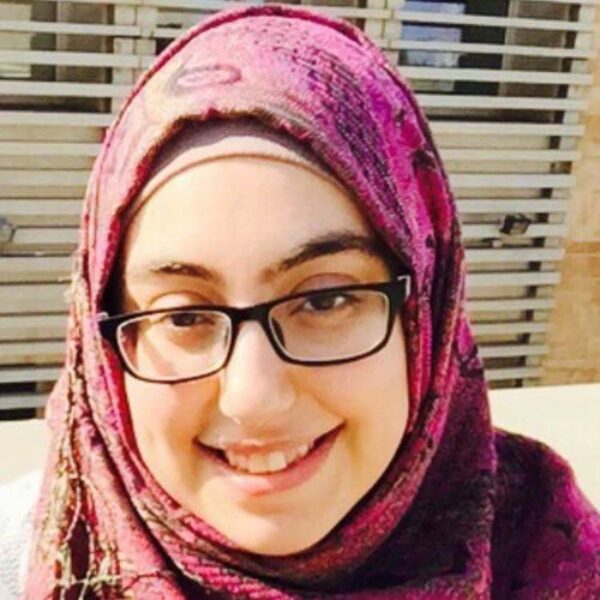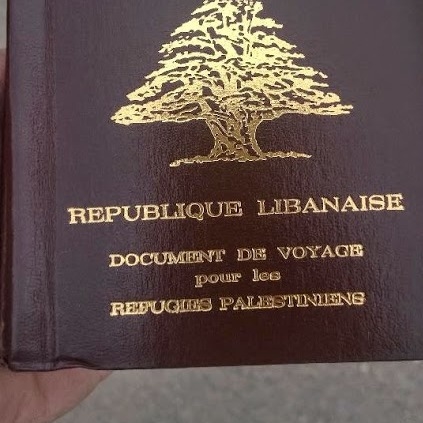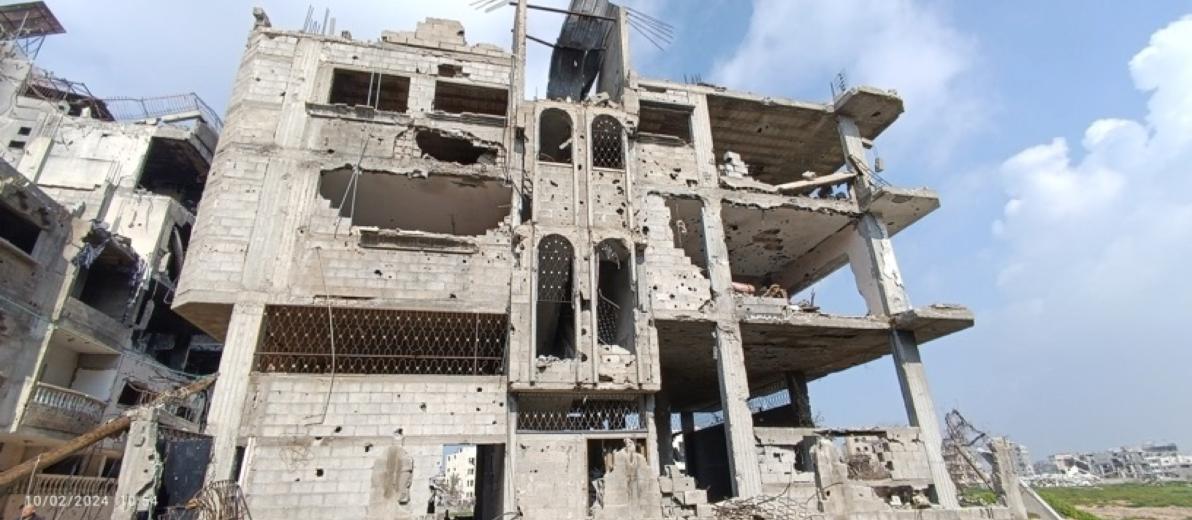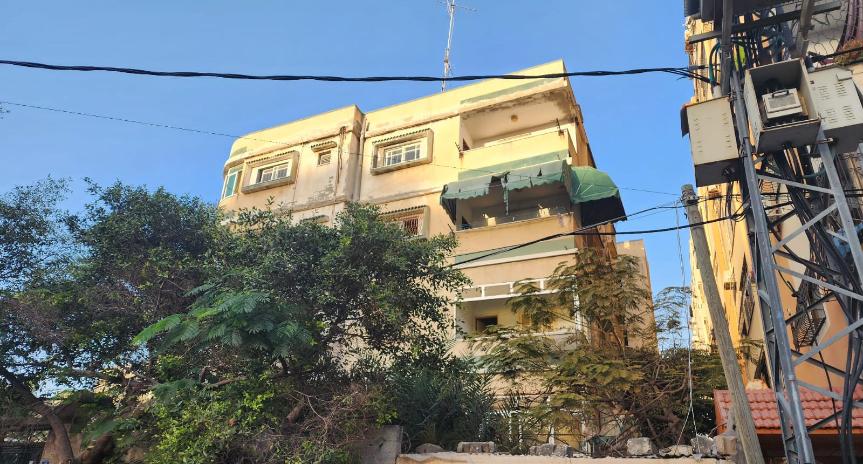I was born in the United States—Atlanta, Georgia, to be specific. So, you can say I'm American on paper, but I'm also 100 percent Palestinian, since both of my parents are Palestinian refugees who were born in Lebanon. (It's a puzzle; I know.) My parents decided to move back to Lebanon because they wanted to raise my two younger brothers and I in a more conservative, religious society. The plan was, and still is, to move back to America when we are older.
Loving and hating my birth country
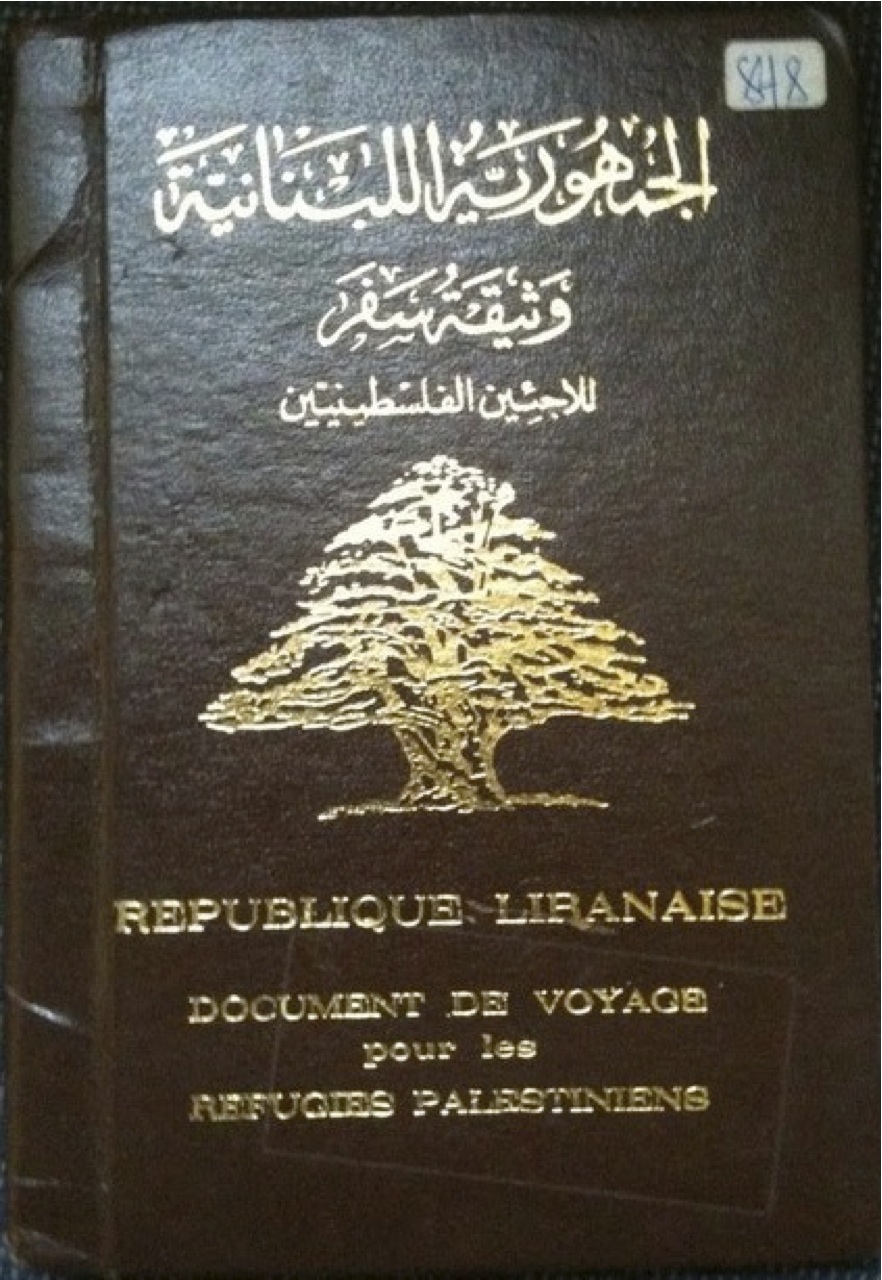
Being Palestinian by blood and American by birth is, to say the least, a very confusing reality. I feel patriotic toward the country where I was born, the country that issued the passport that gives me the chance to travel wherever I want (if I can afford it, of course). On the other hand, I feel resentment toward that same country for helping Zionism take over the land of my grandparents, where I should have been born and raised. The same country that gave me opportunity has helped impose oppression and injustice on my Palestinian brothers and sisters. It helped displace my grandparents, forcing them to flee their home and seek refuge in another land. In other words, my birth country and future home has contributed to the killing of children with whom I share a bond of blood.
A prison within a country
Living in Lebanon makes it even more complicated and confusing. Somewhat like in Gaza, Palestinian refugees in Lebanon basically live in a huge prison. We're forbidden from practicing most professions, have no right to own property and are looked down upon by many circles in Lebanese society. We are blamed for many social problems and are frequently mocked for our accents. When I was in middle school, speaking Palestinian Arabic in a mostly Lebanese school felt very uncomfortable. Once I learned the Lebanese dialect, I was able to automatically change accents depending on the person with whom I’m talking. For some reason, I speak Palestinian if I'm talking to Syrians; I guess it's me wanting them to know I'm a refugee too. Of course, the discrimination Syrian refugees face in Lebanon is a different, very sad story.
Ironically, Americans with foreign worker status in Lebanon are treated as good as the Lebanese themselves; they can own property, work in many professions and open private businesses. And yet we Palestinians, many of whom were born in Lebanon, are denied those same rights.
Fate depends on the passport
I see too many Palestinians, who dream of leaving this “prison” that offers so little opportunity, be denied a visa to the country I so effortlessly enter. And it makes me feel guilty to have such privileges. For instance, it's nearly impossible for Palestinians to get a visa to most countries in the Gulf, whereas I don't even need a visa (how ironic, ha?). My Palestinian colleagues who graduated from the American University of Beirut like me can never get a job at that same university, whereas my passport (or any foreign passport) would easily assure I would be hired. Even writing these words makes me feel insensitive and elitist. What I feel or don't feel is meaningless and insignificant in comparison to what the people with whom I identify endure.
It's funny, yet very sad, how we actually congratulate one another when a Palestinian refugee from Lebanon is awarded a foreign passport–whether from Europe, America, Canada or any other country. It doesn’t matter from where we get it, as long as it's not the doomed blue Palestinian ID or despised brown refugee passport. Parents who migrate to first-world countries so their children will have foreign passports are praised for giving them a chance for a decent life! There's an Arabic folk proverb we cite: المضحك المبكي (“the funny and wailing”); there is no better description of the situation facing Palestinian refugees in Lebanon.
With privilege comes responsibility
I truly believe Palestinians who are citizens of other countries have a great responsibility, a literal burden on our backs. What burden is that? We must work hard to make life better for other refugees. Every blessing Allah has given us is a responsibility, and just as the wealthy should give to the poor and the educated must share their knowledge with the ignorant, we must seize the opportunity to free our brothers and sisters.
We must be vocal on behalf of Palestine, pressuring governments to improve the conditions of our occupied people and using whatever professions we earn to contribute to the advancement of the Palestinian cause. Many Palestinians keep their heads down when they manage to flee to foreign countries, even neighboring Arab nations—as if they've forgotten about those who must stay behind and endure. It truly breaks my heart and angers me to witness this. We must never forget we are first and foremost Palestinians, for whom freedom and independence remain elusive. There is much work to be done!
Posted June 30, 2016

